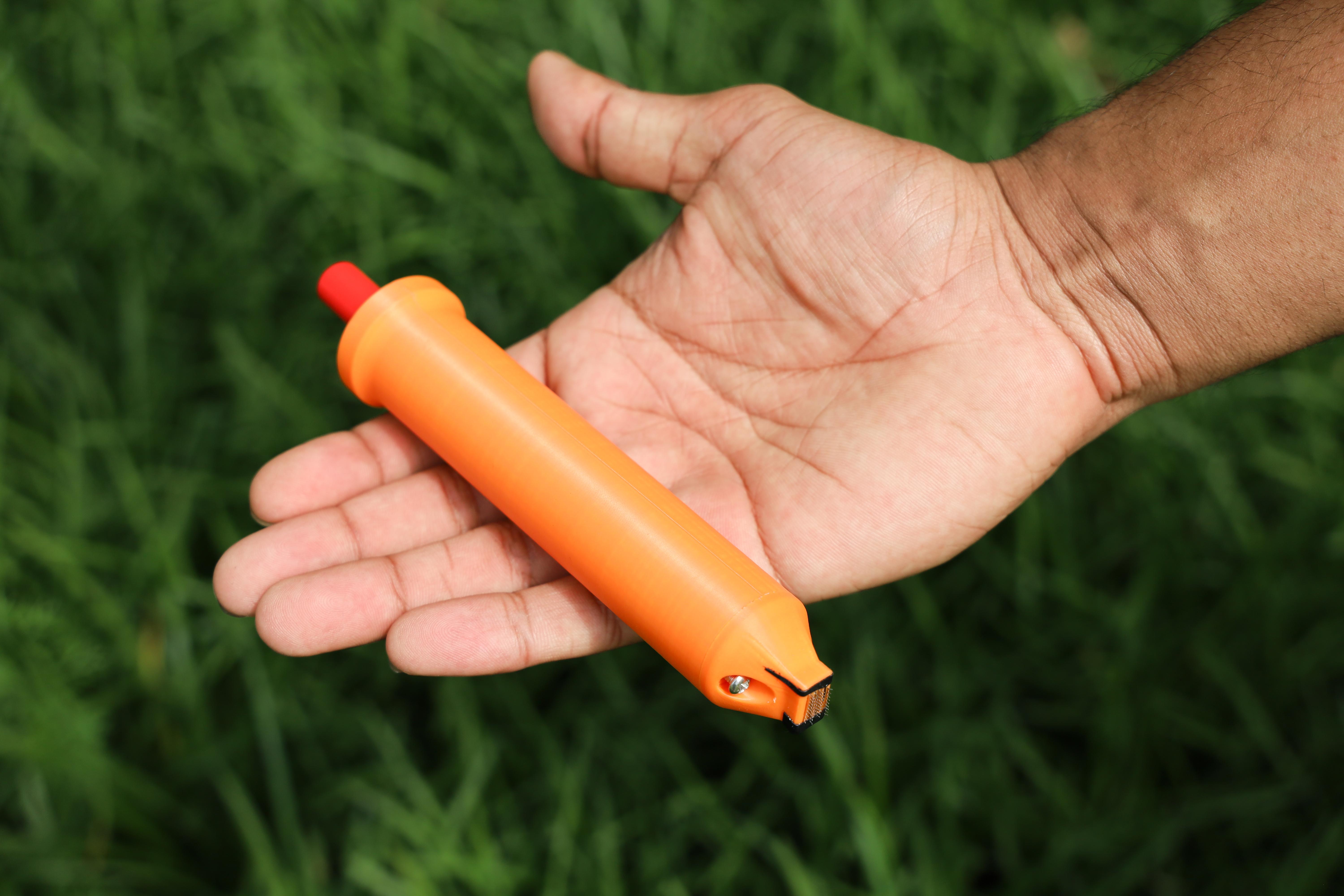When Gaurav Byagathvalli first encountered genetic engineering as a teenager, he didn’t expect the field would shape the course of his life.
He met researcher Saad Bhamla through a partnership between his high school and Georgia Tech and began working in Bhamla’s lab at the School of Chemical and Biomolecular Engineering (ChBE). He fell in love with the research, and before long, he was driving to Tech’s campus from his high school in Suwanee to work in the lab until late at night.
Byagathvalli and Bhamla were working on building low-cost medical equipment that would be accessible to more people around the world — part of Bhamla’s “frugal science” push to democratize access to synthetic biology research.
They wanted to develop a cheaper version of a device that uses electric pulses to allow DNA or RNA through a cell membrane, a process called electroporation.
One day in the lab, Byagathvalli had an idea: Could an everyday object do the same thing as one of these expensive devices? Using a phenomenon called piezoelectricity, barbecue lighters produce a small pulse of electricity each time they’re clicked. Byagathvalli and Bhamla thought the small jolt would be enough for electroporation.
“We were staring at the computer screen, looking at the physics of the lighter, and we realized that it could electrocute cells,” Byagathvalli said. “That’s what sparked everything else — the realization that this tiny thing that we use every day could do the same thing as a $5,000 medical device.”
Byagathvalli enrolled in Georgia Tech’s H. Milton Stewart School of Industrial and Systems Engineering (ISyE) program, and continued working in Bhamla’s lab, gaining a hands-on education in chemical engineering along the way and continuing to refine the team’s electroporation delivery platform.
After pioneering efforts in designing and developing the electroporation system, the team established a successful collaboration with esteemed researcher, Mark Prausnitz, to integrate the technology with microneedles. The cutting-edge platform resulting from this collaboration embodies Piezo Therapeutics' vision of leveraging innovation and ingenuity to improve the delivery of vaccines and other therapeutics in the pharmaceutical industry.
After graduating in January 2023, he announced the founding of Piezo Therapeutics (PiezoTx), a biotechnology startup focused on affordable vaccine delivery.
PiezoTx launched with $2 million in seed funding from Open Philanthropy. Byagathvalli credits its initial success to his co-founders: Bhamla, microneedle pioneer and ChBE Regents’ Professor Mark Prausnitz, and Georgia Tech VentureLab Principal Cynthia Sundell.
“We realized that our novel electroporator, combined with microneedle technology, could deliver vaccines at an ultra-low cost and without a battery,” said Byagathvalli, who is the company’s founding CEO. “We wanted to take it even further, to see how this technology could add value to society. Our mission is to make DNA and RNA vaccines safer, more accessible, and scalable for people all over the world.”
In the long term, Byagathvalli’s dream is to leverage the team’s technology to deliver a wide range of nucleic acid medicines through partnerships with pharmaceutical companies. He said their platform could close the financial and logistical gap between treatments and people who need them around the world, including in middle- and low-income countries.
“This is an environment where everyone is pushing the frontier of medicine to see what the next big thing that makes a difference could be,” Byagathvalli said. “I hope our company will encourage people to think outside of the box, to find really unorthodox solutions that will make a difference for the world.”


